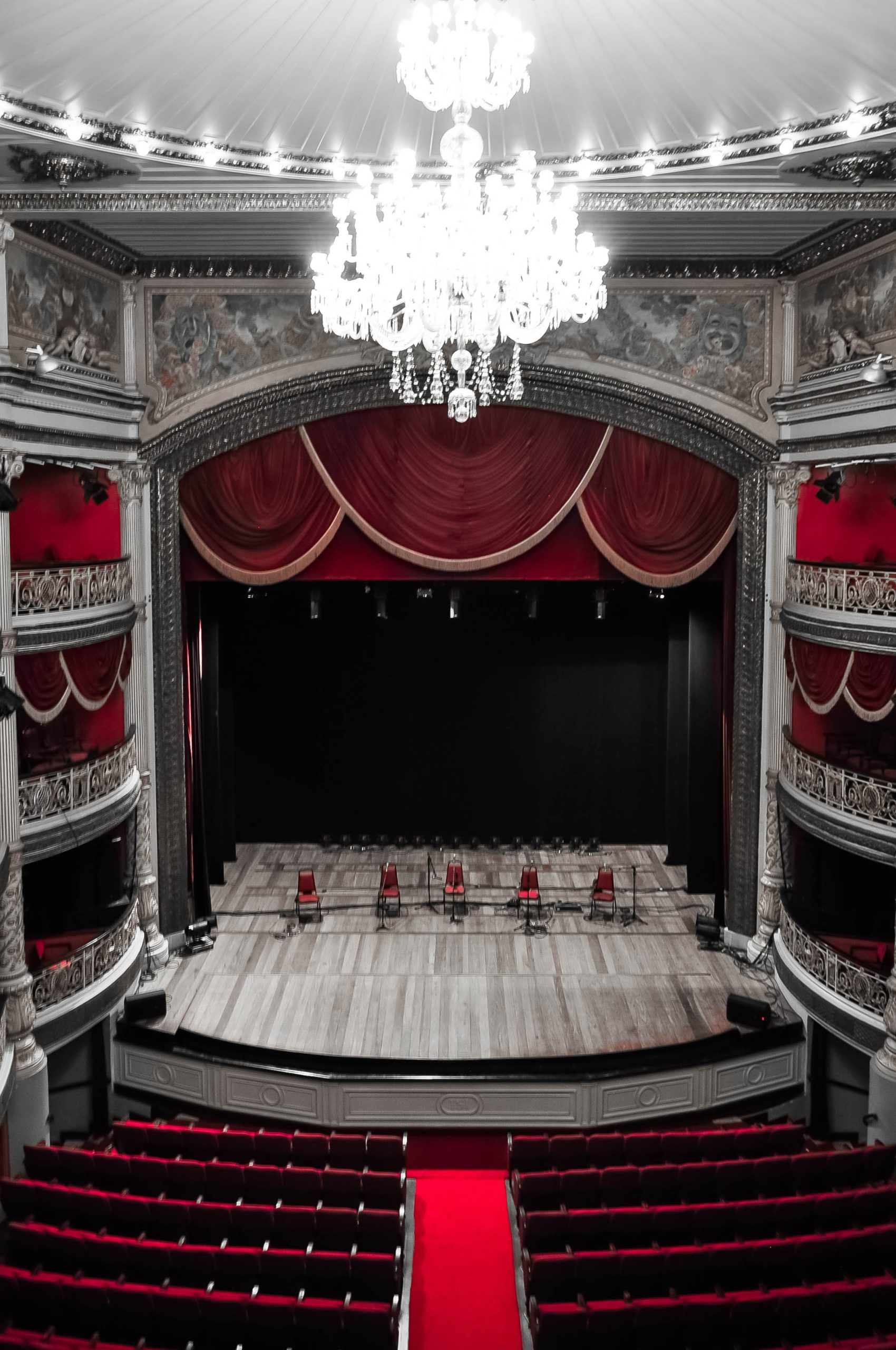Theatre Studies Unit 1
History of theatre styles and conventions pre-1945

Overview
This unit focuses on the application of acting, direction and design in relation to theatre styles and their conventions pre-1945, that is, from the era up to and including 1944. Students work in production roles with scripts from specific periods that fall between the beginning of theatre history until the end of 1944 focusing on at least two theatre styles, their conventions and histories. They study innovations in theatre production through the styles they explore and apply this knowledge to their interpretations of works.
Students develop knowledge and skills about theatre production processes, including dramaturgy, planning, development, and performance to an audience, and they apply this knowledge and skill to their own work. They study safe, ethical, inclusive and sustainable (where possible, environmentally sustainable) working practices in theatre production.
Production roles For Area of Study 2, students must work in at least two production roles. The production roles for Area of Study 2 are:
- actor
- director
- designer – any one or more of costume, make-up, props, set, lighting, sound.
VCE Theatre Studies Unit 1 is available as an acceleration option, subject to Avila College’s acceleration requirements.
Assessment
- Exploring pre-modern theatre styles and conventions
- Interpreting scripts
- Analysing a play in performance
Written Exam
Theatre Studies Unit 2
Contemporary theatre styles and movements

Overview
In this unit, students study contemporary theatre practice through the exploration of scripts from 1945 to the present day. They select scripts from either two distinct theatre styles OR a theatre movement between 1945 and the present day. In either option, students should study at least one Australian play.
Contemporary theatre movements can be defined as performance styles from 1945 onwards that push the boundaries of traditional theatre styles and conventions. They often consist of a range of conventions and features and can cut across art forms, genres and disciplines.
This unit focuses on the application of acting, direction and design in relation to contemporary theatre practice from 1945 to the present day. Students work in production roles to interpret scripts. They study developments and innovations in theatre and apply this knowledge to their own work.
Students develop knowledge of, and skills relating to, theatre production processes that include dramaturgy, planning, development and presentation to an audience, and they apply these to their own work. They study safe, ethical, inclusive and sustainable working practices (where possible, using environmentally sustainable approaches) in theatre production. They develop skills in theatre production analysis and evaluation, which they apply to their own work and to the work of other practitioners.
Production roles For Area of Study 2, students are required to work in at least two production roles.
Production roles for Area of Study 2 are:
- actor
- director
- designer – any one or more of costume, make-up, props, set, lighting, sound.
VCE Theatre Studies Unit 2 is available as an acceleration option, subject to Avila College’s acceleration requirements.
VCE Theatre Studies Study Design
Assessment:
- Exploring modern theatre styles and conventions
- Interpreting scripts
- Analysing and evaluating a theatre production
- Written Exam
Drama Unit 3
Devised ensemble performance

Overview
In this unit, students explore the work of a range of drama practitioners and draw on contemporary drama practices as they devise ensemble performance work. Students explore performance styles and associated conventions from a diverse range of contemporary and/or historical contexts. They work collaboratively to devise, develop and present an ensemble performance.
Students create work that reflects a specific performance style or one that draws on conventions of, or makes reference to, multiple performance styles. They use play-making techniques to extract and develop dramatic potential from stimulus material, then apply and manipulate conventions, dramatic elements, expressive skills, performance skills and production areas.
Throughout the devising process, they experiment with transformation of character, time and place, and application of symbol. Students devise and shape their work to communicate meaning and to have a specific impact on their audience. They learn about ways to source and use sustainable materials when applying production areas to their ensemble performance.
VCE Drama Unit 3 is available as an acceleration option, subject to Avila College’s acceleration requirements.
Assessment
- Devising and presenting ensemble performance
- Analysing a devised ensemble performance
- Analysing and evaluating a professional drama performance
School-assessed Coursework for Unit 3 will contribute 30% to the study score.
Drama Unit 4
Devised Solo Performance

Overview
In this unit students explore the work of drama practitioners and draw on contemporary practice as they devise ensemble performance work. Students explore performance styles and associated conventions from a diverse range of contemporary and/or traditional contexts. They work collaboratively to devise, develop and present an ensemble performance.
Students create work that reflects a specific performance style or one that draws on multiple performance styles and is therefore eclectic in nature. They use play-making techniques to extract dramatic potential from stimulus material, then apply and manipulate conventions, dramatic elements, expressive skills, performance skills and production areas. Throughout development of the work they experiment with transformation of character, time and place, and application of symbols.
Students devise and shape their work to communicate meaning or to have a specific impact on their audience. In addition, students document and evaluate stages involved in the creation, development and presentation of the ensemble performance.
VCE Drama Unit 4 is available as an acceleration option, subject to Avila College’s acceleration requirements.
Assessment
- Demonstrating techniques of solo performance
- Devising a solo performance
- Analysing and evaluating a devised solo performance
End of year performance assessment equates to 35% of Study Score
Written Exam equates to 25% of Study Score

